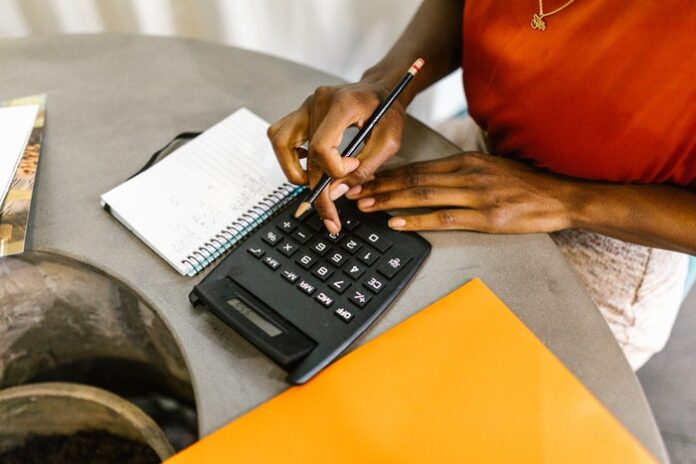Small business owners know that keeping track of your business finances is no mean feat. It takes a lot of effort and perseverance, but doing it is essential. Therefore, if you are unsure about how to do accounting for small business owners, then you came to the right place, because today we give you all the basics!
Bookkeeping for Small Business Owners
As a new business owner, it is now your job to understand everything that comes in and goes out of your business bank account. Business bank accounts are important because you need a separate bank account for your business, and a bank account for your personal transactions.
Mixing up the two is how you end up confusing your “business money” with your “personal money” and it is your downfall. So, what does small business bookkeeping entail?
The Important Bits
Analysis of Financial Transactions
The first thing you do is analyze every one of your financial transactions. In order to do this, you keep a record of your source documents. Source documents are your records that show your business transactions, business expenses, cash flow, cash receipts, and your income and expenses.
Essentially, it is basic bookkeeping — holding on to all your business financial statements to show evidence of what comes in and what goes out.
To streamline this process and reduce the manual workload, many businesses are now turning to automated AP solutions. These solutions automate the accounts payable process, ensuring accuracy and efficiency in managing business finances.
Journal
Journals are where you keep all the information gathered above. Usually, this is through an accounting system that uses intuitive accounting software to make the process easier.
Small business accounting software makes it easier for you, because most accounting software allows for special journals that handle recurring expenses and transactions, a general journal where you put things that are not as regular.
Ledger
A business ledger is essentially the overview of all the business transactions that take place in the special and general journals.
By knowing these three important things ahead of time, you already have a head start on the bookkeeping system we explain below.
Setting Up Your Small Business Accounting System
We spoke with Auditox Accountancy to get a list of a few things you do to get your accounting system in order to record everything you need for HM Revenue and Customs (HMRC) when it comes tax time.
- Open your business bank account (and business credit card to build your business’ credit).
- Choose an accounting method. This is on a cash basis (record the transactions only after the customer purchased from you) or on an accrual basis (record income as you make a sale and costs as you incur them).
- Record your transactions. Decide if you hire an accountant, do it yourself by hand, or look for the best accounting software for you.
- Know how you get paid. Some business owners might decide to extend credit to customers and send invoices as accounts receivable. (Note: some accounting software have accounts receivable options where invoices are sent to customers on specific dates automatically. This software covers your accounts payable too, so you have everything altogether).
Your Options
Once you decide on these few things, you then explore your options: Do it yourself (DIY), accounting software, or hiring an accountant.
DIY
Know that as a small business owner, you are responsible for EVERYTHING to do with your small business:
- Cash flow
- Manage taxes
- Corporation tax
- Income tax
- Sales tax
- Preparation financial reports for the accounting period
- ALL tax payments (because you’ll need to know your tax obligations)
- Recording all business documents (including all bank statements and credit card statements)
- Expense management (and knowing your allowable business expense)
- Annual turnover
And much more, besides.
The reason we point this out is that as your business grows, you have more and more information to store and manage on your own. If you are confident doing that, then that is great! There’s no doubt you save money doing it this way, and so long as you have all the financial information you need for financial reporting and audits, then you are fine.
If you do not feel quite so confident, though, then that is where accountants and accounting software come in.
Accounting Software
If you think you benefit from accounting software as a small business owner, then you are probably right. It takes some time to find the perfect software for you, but it is out there. We do not cover all of the accounting software options out there for you today, but instead we tell you what it helps with and why it is good for small businesses.
First, it is a simple place to record all your business transactions. From here, it generates reports each month to help you understand things like your income and expenses and profit and loss. It also creates a balance sheet for you to look over. (This balance sheet essentially tells you if you have a profitable business or not).
Second, cloud accounting software is smart, so it not only covers the accounting basics (everything you need to report to HMRC as a small business owner), but it also helps you to prepare to pay tax by predicting tax liabilities and creating a business model that really works.
Finally, accounting features of this sort of software help with everything from recording income and expenses to preparing for tax returns (including any corporation tax return you need to prepare) and paying national insurance, etc.
The point is, if you and a business partner (if you have one) feel comfortable having one place for all of your accounting needs, then using accounting software is great.
Hiring an Accountant
Your second alternative to going it alone is hiring an accountant. Yes, it costs you more money, but you deal with an expert who helped many small businesses like yours in the past.
An accountant creates your chart of accounts for you, establishes an accounts payable process, helps you gather all the financial information you need when filing your taxes, helps you understand your business accounts, and makes you more tax efficient. He/she also supports you with the financial side of your business.
Once you have a business idea and turn it into a success, you possibly need some support. It is still your own business, but a certified public accountant helps with your accounting needs, so you do not worry.
Final Message
Whether you decide to do it yourself and research the HMRC requirements for your small business, or you decide to use accounting software or hire an accountant, the choice is yours. Just get comfortable with accounting requirements for small businesses however you can, because it is important you get it right to turn your business into a success.
Find a Home-Based Business to Start-Up >>> Hundreds of Business Listings.

















































